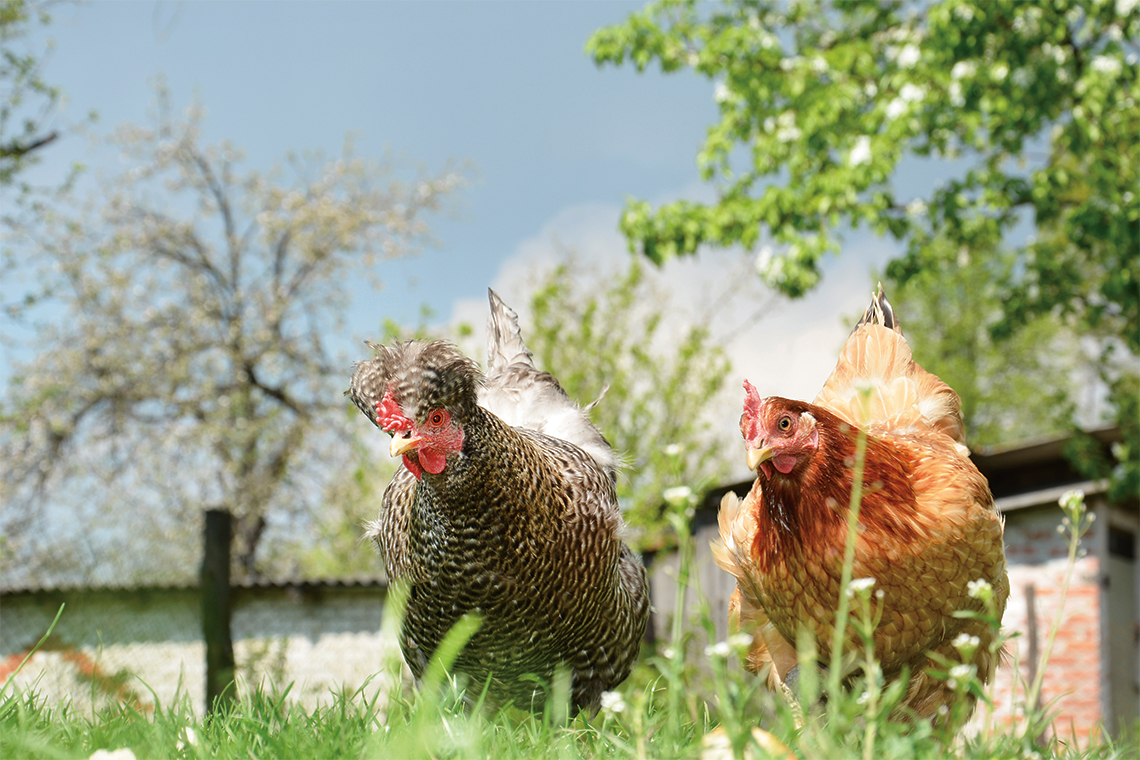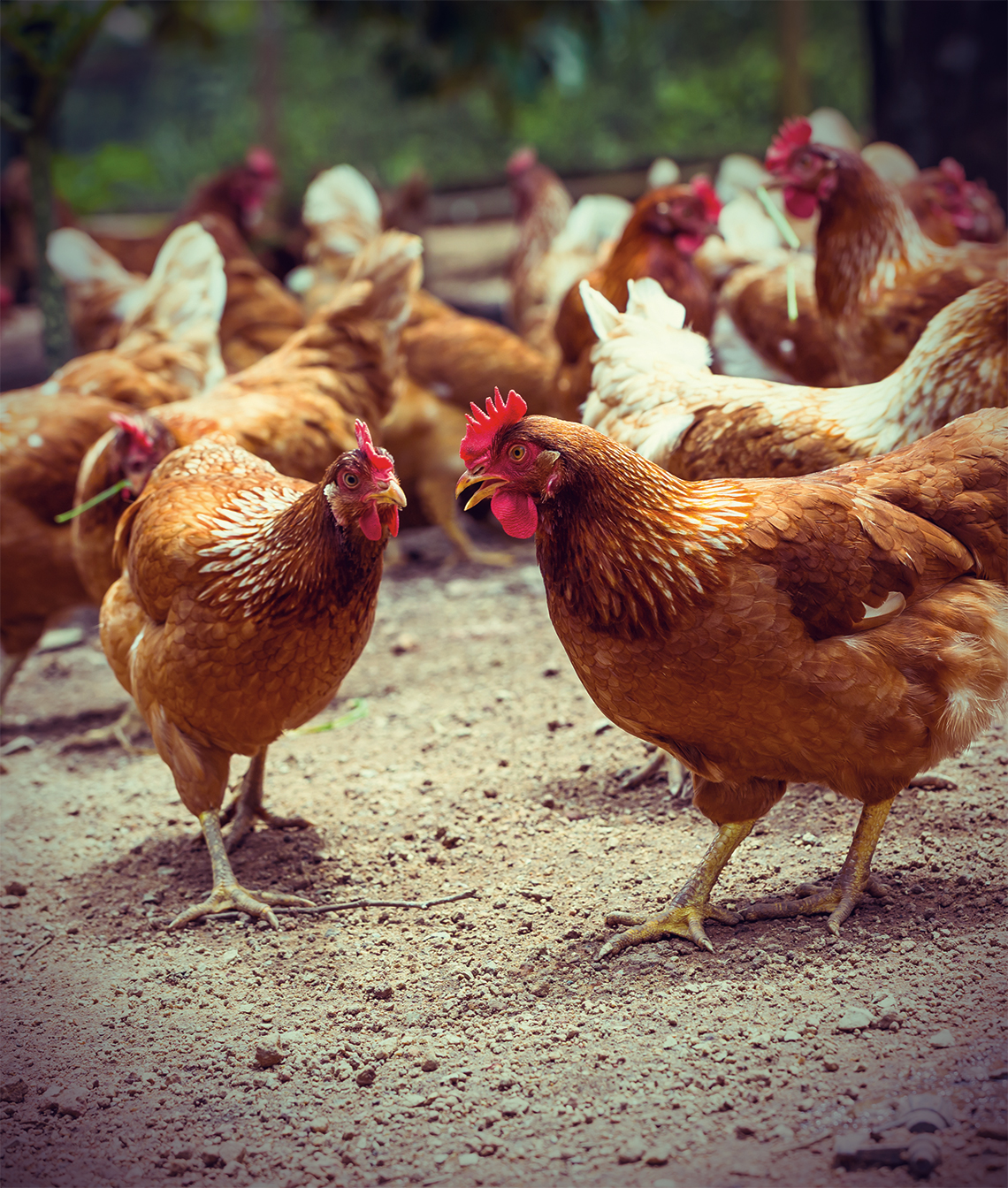At the end of April, Teajay Smith ordered chicken online. Live chicken. Twenty hens, to be precise.
She was careful to order only hens, no roosters. She kept eight of them and gave the rest away to friends. None have laid eggs yet; they’re still too young.
Smith hasn’t had any problems yet, but she didn’t check with the city or the county before getting her hens.
“I looked it up but didn’t find anything on Fort Lauderdale’s website that I would rely on,” she said. But “our community is very tolerant of it.” Her community may be, but her city isn’t. While urban backyard chickens have become popular in many places around the country, Fort Lauderdale is among a number of South Florida cities that bans keeping them. That hasn’t stopped Smith and others like her. Whether it’s for their own households or their friends and neighbors, they believe it’s more economical and ethical to keep chickens as pets instead of buying mass-produced eggs at a grocery store.
Josephine Jones has lived in Fort Lauderdale for 30 years. When she and her husband took a trip to Seattle nearly 10 years ago, she saw that other cities allowed chickens as pets. A few years ago, she started the Fort Lauderdale Hen Project to make backyard hens legal here.
Years have passed since the project began. Nothing has changed.
“I had a neighbor helping me but we’ve both lost steam. You only have so much fight in you,” Jones says. “There was resistance from the commissioners right from the start.”
In 2013, Jones was working with the Fort Lauderdale Sustainability Advisory Board to get an ordinance passed that allowed backyard chickens with rules, like having a coop and making sure they were hens only. At a city commission meeting in May of that year, Jones stated her case: Backyard hens are harmless. They’re productive. Many residents own them already, both locally and in other major cities. But nothing came of it at that meeting or any time after.
“Their concerns were that the city was going to get overrun with chickens and were more concerned with how it would affect tourism,” Jones says. “We tried educating the commissioners. We had a document from 1914 that said the U.S. government wants you to raise hens. When did it become illegal to raise your own food?”

Other cities around the country allow backyard hens, including New York, Seattle, Los Angeles, Boston and parts of the Miami area. Just an hour away from Fort Lauderdale in the city of South Miami, residents can own up to four adult hens and five chicks per household. Having chickens as pets is completely legal. But in Fort Lauderdale, the ban isn’t expected to change anytime soon.
Fort Lauderdale City Manager Lee Feldman said there was a time where the commission was considering allowing hen-raising, but it hasn’t been a discussion for the last four or five years.
“At the time, the commission said they didn’t want to move forward raising poultry,” Feldman says. “We’ve got pretty aggressive agenda items we’re working on right now, and it hasn’t even been discussed.”
Feldman says the main focus of this year is more on community redevelopment, like traffic problems, 911 communication, homeless issues and a new police station. The commission hasn’t brought up urban farming expansion this year as a priority.
Jones doesn’t have any of her own chickens right now but plans to get some – when she moves out of South Florida. “It’s things like this: You want to live a healthy, organic lifestyle and you can’t,” she says. “It’s a cool thing where parts of the country are encouraged to live this lifestyle and here there is so much resistance, and I just find that crazy.”
So what’s the difference between an egg from your backyard and an egg from your grocery store? It’s all about what happened to it before it got to you.
“Eggs that you buy in the supermarket are bleached to look nice to the consumer,” Jones says. “There’s a protective coating on them. That’s why our eggs are refrigerated. Europeans don’t refrigerate eggs.”
For the most part, this is true. A 2014 NPR report explained that Americans, Japanese and Australians bathe and refrigerate eggs, but most other countries don’t. It comes down to the chicken or the egg: some European countries vaccinate egg-laying hens against salmonella, which isn’t required in the U.S. Instead, we wash and refrigerate eggs, NPR said. No matter what comes first, the intentions are the same — to fight against bacteria.
But to people like Jones and Smith, having chickens is so much more than the fight against bacteria.
“I also have a son who is home-schooled. This is a good idea to show him how to take care of something and harvesting a benefit out of that,” Smith says. “We grow the food and then feed them. He has an awareness now about the circle of life. He’s more engaged in the whole process.”
Laura Kokus keeps chickens at her home in West Palm Beach, where it’s also banned. She too says she’s seen changes in her family.
“My daughter is 11 years old and she says she doesn’t want to eat chicken anymore because it’s like eating a pet, so we’re working on becoming vegetarians now,” Kokus says.
For Jones, she’s put her work on hold. Three years ago she was pushing for signatures on her change.org petition, asking residents to support backyard hens. Today she’s defeated. “It does wear you out pretty quickly. I was gung-ho about 1,000 signatures, but it’s not enough,” she says. “As a resident, I feel secondary. Tourism comes first.”












1 comment
I remember as a child we had chickens it was just the way we lived.
In this day and age people should be allowed to have more sustainable ways to live.